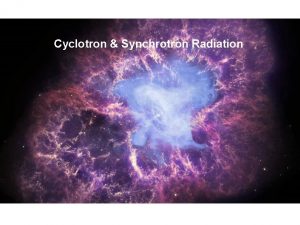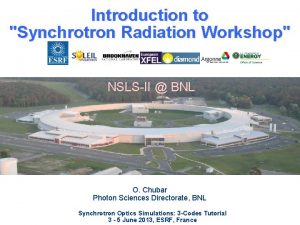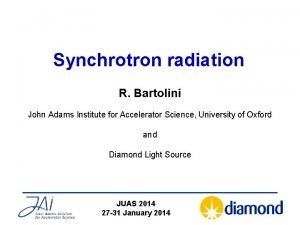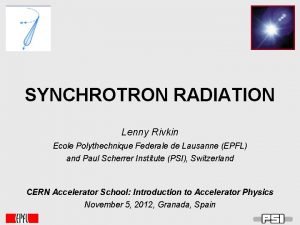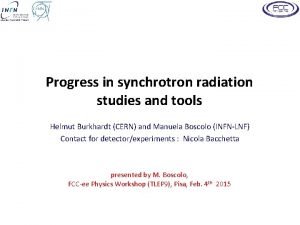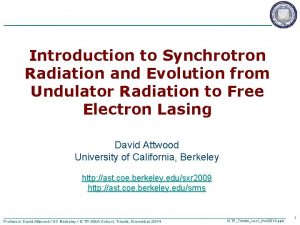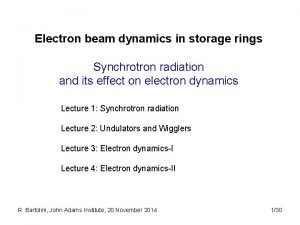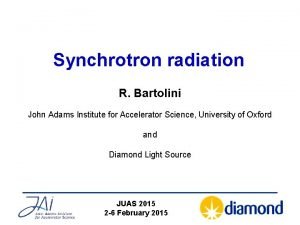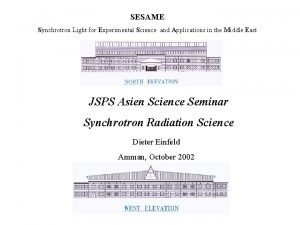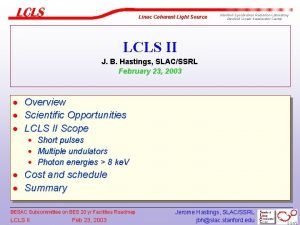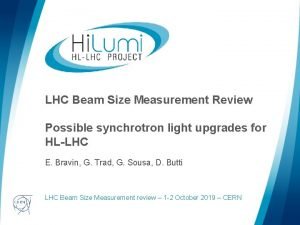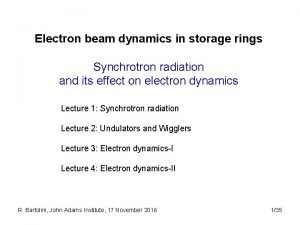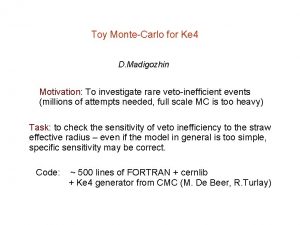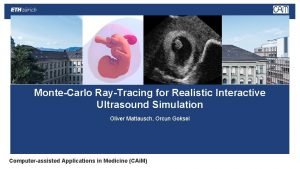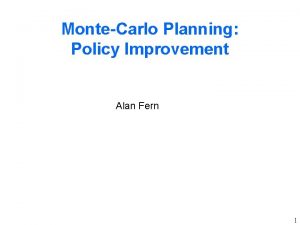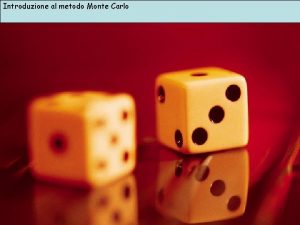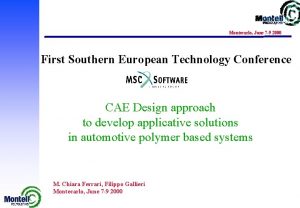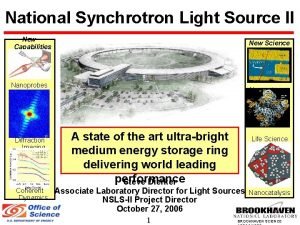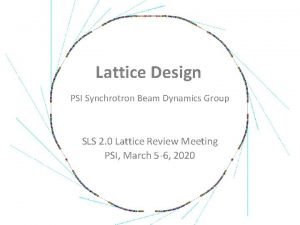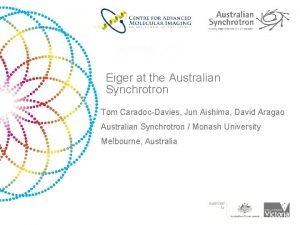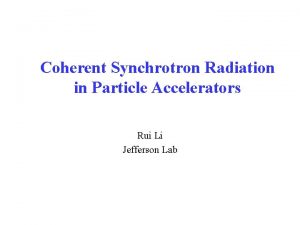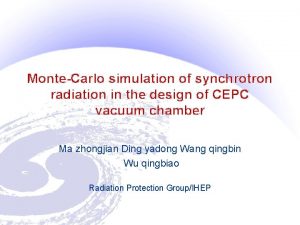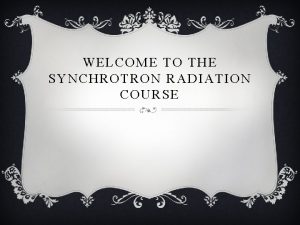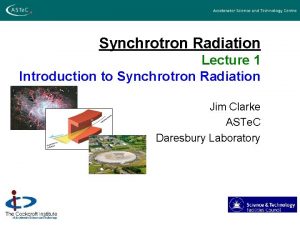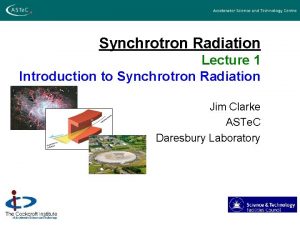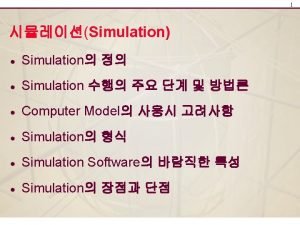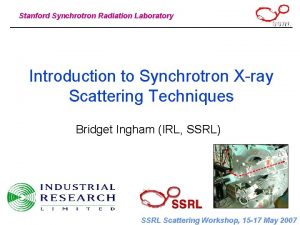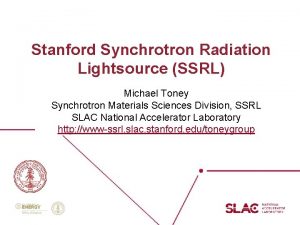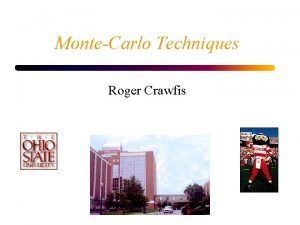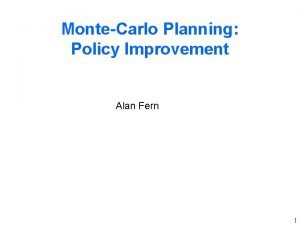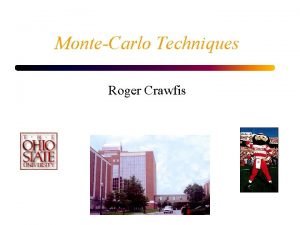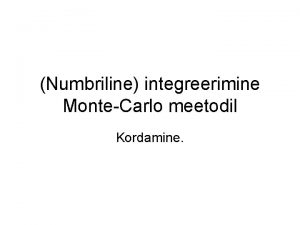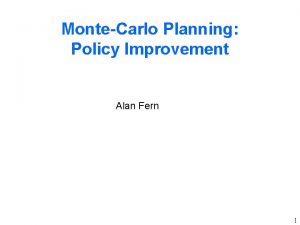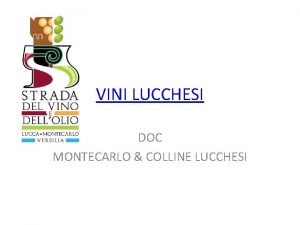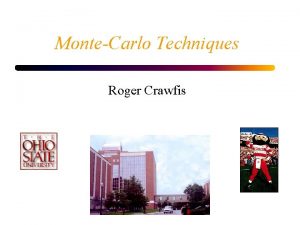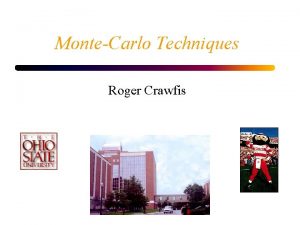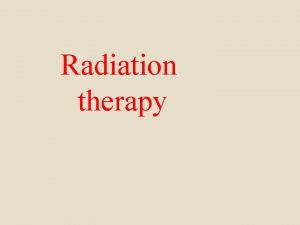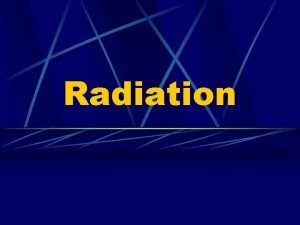MonteCarlo simulation of synchrotron radiation in the design




















- Slides: 20

Monte-Carlo simulation of synchrotron radiation in the design of CEPC vacuum chamber Ma zhongjian Ding yadong Wang qingbin Wu qingbiao Radiation Protection Group/IHEP

Outline n Introduction n Shielding Design Criteria n Monte-Carlo simulation of synchrotron radiation n Simulation for thickness of the main tunnel n Summary

CEPC Lattice Layout (September 23, 2014) ½ RF IP 1 P. S. RF (4 straights, 849. 6 m each) (8 arcs, 5852. 8 m each) RF ½ RF (4 IPs, 1038. 4 m each) IP 4 D = 17. 3 km One RF station: • 650 MHz five-cell SRF cavities; RF P. S. • 4 cavities/module • 12 modules, 8 m each • RF length 120 m IP 2 C = 54. 374 km IP 3 RF P. S. ½ RF

Radiation protection tasks n Synchrotron radiation shielding n The thickness of the main tunnel n Shielding for straight tunnel, beam dump, collimate station, injection section, maze, duct, shielding doors, RF station, etc; n Induced radioactivity analysis: cooling water, ventilation air, accelerator component, local shielding concrete, ground water, environmental samples, etc; n Personal safety interlock system n Radiation dose monitoring system

Shielding Design Criteria n Dose limitation in regulations l l l The national standard of the People’s Republic of CHINA, “Basic standards for protection against ionizing radiation and for the safety of radiation Source”, GB 18871 -2002. The national standard of the people’s republic of china, “The rule for radiation protection of particle accelerators”, GB 5172 1985. ICRP publication 103, “The 2007 Recommendations of the International Commission on Radiological Protection”.

Radiation dose limit for person in the regulations Effective Dose Worker Public Average in 5 years 20 m. Sv/year 1 m. Sv/year Max. in single year of the 5 years 50 m. Sv/year 5 m. Sv/year Lens eye 150 m. Sv/year 15 m. Sv/year Skin 500 m. Sv/year 50 m. Sv/year Equivalent Dose 6

Limits for shielding design of CEPC-s. PPC Area Design Value example Radiation monitored area < 2. 5 μSv/h Outer of the tunnels, where worker can stay long Radiation controlled area < 25 μSv/h Outer of the tunnels, where worker can stay occasionally Forbidden area >>1 m. Sv/h Inner of the tunnels, worker cannot get in during accelerator operation Site boundary 0. 08 m. Sv/year All the areas should be clearly defined after the functional structures are determined. 7

Concentration limit of induced activity n Residual dose rate < 1 m. Sv/h for the workers to get into the tunnel ( 30 cm, 4 h down ) (refer SNS) n The exempt value for activation is pointed out according to GB 18871 -2002: “if there are more than one kind of radionuclide, only if the ratio of activity (or specific activity) to its exempt value of each kind of the radionuclide was less than 1, it is exemptible. ” n Soil and ground water activation: the prompt dose rate is ~5. 5 m. Sv/h in the thickness of 1 m soil to ensure it’s below the exempt value of above.

Synchrotron Radiation n Synchrotron radiation will induce: l l l Heating of the vacuum chamber Radiation damage to machine elements Formation of ozone and nitrogen oxides in the air Leading to corrosion of machine components and health hazards for personnel Other issues……

Synchrotron Radiation parameters n Comparison between LEP 2 and CEPC Parameters of synchrotron radiation Beam energy E Ge. V Beam current I m. A Bending radius ρ m Power per unit P W/m length Critical energy Ec ke. V Bending angle θ mrad Solid degree φ μrad CEPC values 120 16. 60 6094 LEP 2 values 100 5. 5 3104 1305. 06 804. 89 628. 93 3. 1669 4. 2582 708. 76 6. 4 5. 1097

Synchrotron radiation spectrum analysis SR critical energy: ~ 628. 93 ke. V SR Power: ~ 1305. 06 W/m SR spectrum: 1. The average energy of photons is 0. 9466 Me. V from the photon spectrum(E>200 ke. V) 2. Total number of photons is 8. 62× 1015 S-1 m-1

MCNP simulation Simulation model for beam pipe LEP’s Vacuum chamber was adopted: 1. But two materials: Composed by a few millimeters of Al covered by 3 or 8 mm of Pb or totally by a few millimeters of Cu 2. Synchrotron radiation hits the vacuum chamber at a grazing angle of 3. 1669 mrad Synchrotron radiation source analysis The cros section of vacuum chamber (Above: Al&Pb Below: Cu) Solid degree of synchrotron radiaiton:<10 -5 rad Bending angle Between beam and SR: 3. 1669 mrad

n Hypothesis in the simulation l l l A straight chamber replace the arc structure • The 80 meters long tunnel and linear source • Radius of curvature of main ring is up to 6000 m, while the chamber seems as a straight line in tens of meters distance Synchrotron radiation cone angle is neglected • Cone angle is 4. 26 μrad, which focus 85% power of synchrotron radiation Photon energy higher than 200 ke. V for heat and dose simulation • Energy lower than 200 ke. V only contributes to heat in the vacuum chamber

Comparison of two structures Energy deposition, dose rate and heat load per equivalent photon in different structure parts Al&Pb Materials Left H 2 O Right H 2 O Al Pb Air Energy deposition (Me. V/g) 4. 0× 10 -8 1. 2× 10 -7 5. 3× 10 -7 7. 5× 10 -8 3. 5× 10 -10 Dose rate (Gy/h) Heat (W/m) 1. 5888× 104 4. 7664× 104 2. 1052× 105 2. 9790× 104 1. 3902× 102 -----7. 092× 102 2. 990× 102 ------ Dose rate (Gy/h) Heat (W/m) 9. 5328× 103 1. 986× 104 8. 6594× 104 7. 5468× 103 1. 1519× 102 -----9. 673× 102 8. 43× 101 ------ Cu Materials Left H 2 O Right H 2 O Inner Cu Outer Cu Air Energy deposition (Me. V/g) 2. 4× 10 -8 5. 0× 10 -8 2. 18× 10 -7 1. 9× 10 -8 2. 9× 10 -10

Mass attenuation coefficients The spectrum of photons in the air 1. Energy of most of photons is between 100 ke. V and 300 ke. V 2. The flux out of Cu is obviously lower than Al&Pb’s. 1. 2. The mass attenuation coefficients of Cu are between Al and Pb Vacuum chamber fabricated by Cu may instead of Al and Pb

CEPC-s. PPC main tunnel simulation Simulation result for shielding thickness of the main tunnel of CEPC-s. PPC Beam loss parameter: 1 W/m for 120 Ge. V electrons and 45 Te. V protons, the material of the beam pipe is Fe and 1 cm thickness

n Radiation shielding design principle l l The shielding thickness of the main tunnel was determined by the radiation level caused by average beam loss along the tunnel, other hot spots, such as places for IP, injection, collimation and beam dump, have to be locally shielded to the equal radiation level respect to the former situation Radiation levels caused by other beam loss parameters can be deduced through proper conversion coefficient n Average beam loss parameter l According to the cumulated number of particles and the lifetime of the beam

n Beam loss calculation l l For CEPC: ~0. 0013 W/m For s. PPC: ~0. 0019 W/m@arc section, ~0. 19 W/m@straight section, main beam loss@ collimator section, n So, the dose rate in the arc tunnel is about several hundreds μSv/h n Dose rate is very low compared to value caused by synchrotron radiation

summary n The dose rate in the tunnel for CEPC is mainly dominated n n by synchrotron radiation. Above 65% heat were deposited in the chamber Cu may be a good material for beam pipe from the point of radiation protection, also have to be consider from the manufacture/price and other point of view Dose rate, which level to be deduced is depend on the radiation resistant of the electron component Detailed simulation have to be conducted next: reliability verification, actual structure, thermal analysis, etc.

Thank you!
 Cyclotron and synchrotron radiation
Cyclotron and synchrotron radiation Felexit
Felexit Synchrotron radiation
Synchrotron radiation Bremsstrahlung radiation
Bremsstrahlung radiation Synchrotron radiation
Synchrotron radiation Synchrotron radiation
Synchrotron radiation Synchrotron radiation
Synchrotron radiation Synchrotron radiation
Synchrotron radiation Synchrotron radiation
Synchrotron radiation Stanford
Stanford Synchrotron radiation
Synchrotron radiation Synchrotron radiation
Synchrotron radiation Montecarlo
Montecarlo Interactive ultrasound simulator
Interactive ultrasound simulator Montecarlo
Montecarlo Metodo montecarlo esempio
Metodo montecarlo esempio Montecarlo
Montecarlo National synchrotron light source ii
National synchrotron light source ii Psi synchrotron
Psi synchrotron Synchrotron
Synchrotron Synchrotron
Synchrotron
